The Man Who Knew Buffalo Bill | An Interview with Jeremy Gluck
In the summer of 1977 Jeremy Gluck followed fate to England inspired by a love of their humour, their culture and, above all else, the overwhelming fear of missing out on the second major music revolution in as many decades.
He made the pilgrimage from Ottawa, Canada to the mecca of music the year punk exploded. There was no going back. He cemented his move in ‘78 and set out to make his mark on history with his first group R.A.F., becoming the more appropriately named Barracudas soon after. He and his mates quickly embraced a unique sound, one that looked to the past for influence rather than to the future like so many of their contemporaries. They drew proudly and earnestly from surf, mod, and punk, melding their image and sound with a sly self-awareness with liner notes from their first single, 1979’s “I Want My Woody Back” stating “London is a lonely town, when you’re the only surfer boys around”. What a way to stand out in a town with a slogan as grim as “No future”. Gluck’s own future was taking brilliant shape. Within a few short years The Barracudas signed to EMI, he was brushing leather-clad shoulders with Rough Trade royalty like Swell Maps, and collaborating with members of Australia’s Lipstick Killers. When The Barracudas splintered in 1984, Gluck turned instead to family life, his wife and newborn child. He returned to his journalistic roots, covering the American alternative movement for Sounds magazine until in 1987 he received an invitation to make the album of his affection, with some of the most important figures in punk history no-less. This album became the legendary gothic country odyssey I Knew Buffalo Bill. The album is an alchemical juggernaut of personality, each element bound unmistakably to its wielder. Rowland is identifiable immediately through his guitar work, Nikki’s fingerprints are all over the song structure, and even though Epic Soundtracks and Jeffrey Lee Pierce only appear on a handful of tracks each, their contributions are immediately identifiable to those versed in this corner of the alternative 80s. However, what truly distinguishes this album is the songwriting, with lyrics singularly undertaken by Jeremy Gluck. The lyrics seem completely out of time, with no mention of anything more modern than the 19th century. Yet even with its references to gunslinging and trailblazing, it avoids the “concept album” albatross through sheer conviction. Every line by Gluck is sung earnestly as if from the mouth of an aged outlaw, having one last drink, hat in hand, before dissolving against the setting sun. Jeremy took the time to speak with me about the genesis of this opus just in time for its first Vinyl reissue in 27 years.
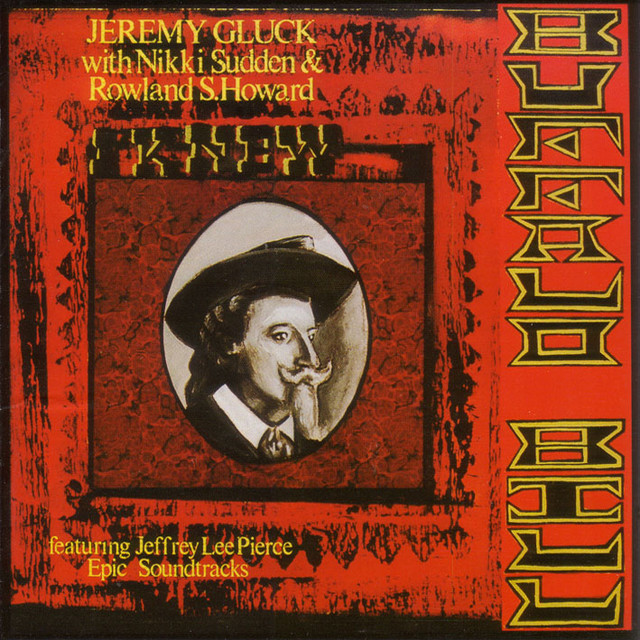
I Knew Buffalo Bill is available April 20th, Record Store Day through local retailers in the UK as well as from the Rough Trade Website.
Jeremy also recently released a career retrospective called Glass Modern which includes Buffalo Bill era track “Sorrow Drive” along with the original demo of “Burning Skulls Rise”. Glass Modern is available via Bandcamp.
“I think there’s people around, quite a few more than I’m aware of and to them, the music I have made means as much to them as the music I loved when I was younger still means to me.”
Jiah Carron: This year marks the 27th anniversary of the sole album by the greatest and possibly first indie supergroup album of our time. How did your friendship with Nikki Sudden lead to the creation of this record?
Jeremy Gluck: I’d known Nikki since ‘78. When I first lived in London, every weekend Robin and I would meet at the old Rough Trade record shop on Kensington Park Road where all the bands went to hang out. I met Nikki when he was in Swell Maps because he would hang out there too, and they were a big deal on the label and we just hit it off. I knew Jowe (Head) and Epic (Soundtracks), bless him, but it was Nikki I really jived with. We became quite good friends and The Barracudas played a bill at the Nashville Room in ‘79 where we supported Swell Maps. I remember in ‘83 or ‘84 when I was still in The Barracudas, we were saying we should record together. Meanwhile, I was living my little life with my wife and my daughter. I was making decent money writing, not really thinking of doing music at the time, because how would I do it? And then one day, Nikki just rang out of the blue and said, “I’m in the studio with Rowland and Epic. We’re making an album for Creation Records. Why don’t we just stick 7 or 10 days on the schedule? We’ll make our album.” A couple of days later, I remember arriving off the train, met by Nikki and Rowland.
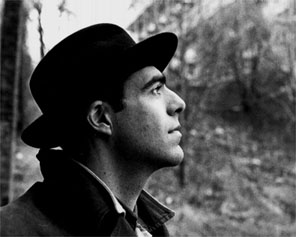
Was there an established familiarity between those involved or was the dynamic between the players a product of tension?
The dynamic between me and Rowland was essentially non-existent. We were just from different worlds, whereas Nikki and I had an old, very friendly dynamic. With Rowland I think it was opposites attracting. I knew Rowland cause I’d interviewed The Birthday Party a couple of times for Sounds, I was one of their champions early on, but we didn’t really know each other. He was a very strange person. He had a great bond with Nikki and Epic, actually, but to me he was like, “Yeah, you’re not really one of us” which I wasn’t in a way. With Rowland, it’s just “What planet is the guy from?” Forget his guitar playing, they must play like that on his planet. We just focused on what we had going in the moment and gave it space to happen. Nikki and I were just like, “This is great, we’re finally doing this, just go with it.” There was a lot of magic in the room and it was very serendipitous. You couldn’t have planned that album. Elements of it were already in place but mostly it was just spark.
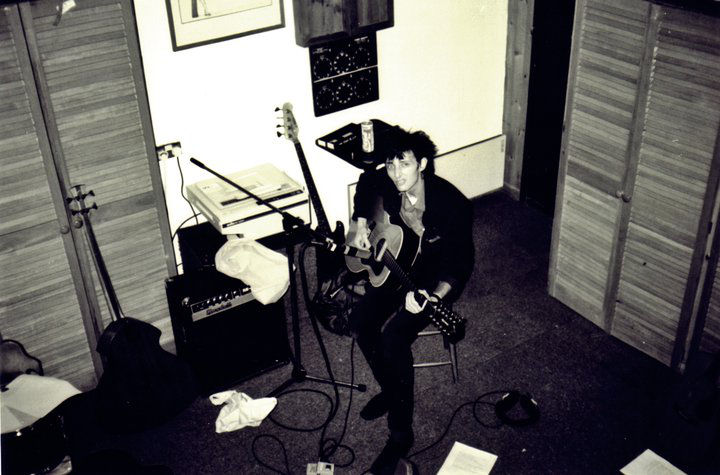
How did Jeffrey Lee Pierce of The Gun Club become involved?
I loved Fire of Love before I ever met Jeffrey. Frenchy (Flicknife Record boss) was like, “We want to get some more names on this, we’ve only got Rowland and Nikki and Epic, who else can we get?” Anyway, I think he and Jeffrey had the same dealer at the time because I remember Frenchy called me, short notice and said “Come down to such and such pub, Jeffrey is going to be there, you can meet him.” Frenchy had made some deal about paying him some ludicrously small amount, but enough probably for that day to see to his needs. When he showed up to the session, he barely spoke, which wasn’t hostility, he was just doing a session thing doing what session people do in that situation. He did some beautiful guitar and left and then Frenchy was like, “Now we can put Jeffrey Lee Pierce on the cover!” I had no objection to that.
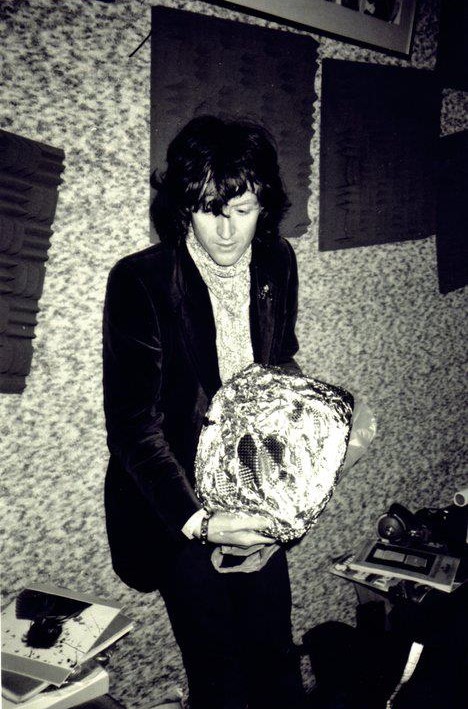
The album’s thread seems to trace back to a shared fascination with the old weird America among the players. How did you first come to acknowledge this communal influence? Was there an understanding that what was going to be recorded would be Western influenced?
As a lyricist, I loved the storytelling element of country music and still do, and I think that they’re like high art. It’s the conciseness of the form. I was listening to a lot of that music at the time and Nikki and I were reviving different things we would turn each other on to. So there’s a lot of that storytelling that comes through on all the tracks from Buffalo Bill. A lot of it was created very spontaneously. We discovered this mutual interest in what would now be called Americana, country and early rock’n’roll. Nikki was really into Bear records from Germany. They had started releasing all this incredible, you know, 84 CD box set of everything ever released by some obscure American hillbilly artist. He was eating up all this stuff and I was really getting into truck driving music as any man will do at some stage in their life and listening to Red Sovine and Dave Dudley’s Six Days on the Road and all that stuff. Nikki sort of planted the flag for so many influences that it goes beyond the barrier into a different kind of surrealist, altered state of copying, you know, it’s so influenced that it’s not influenced. It became almost like some sort of Dadaist exercise.
Lyrically you manage to create a world that draws on Western folklore without a glint of gimmick or parody. The atmosphere of this album feels completely authentic aided by a voice that, while atypical of the genre, is used with a conviction and raw emotion that is rarely witnessed in country music. This gothic roots sound had been explored previously by groups such as Nick Cave and the Bad Seeds, Crime and the City Solution, and to a certain extent The Birthday party, but never in such a definitive way as on this album. What set the tone for this album musically?
Conviction. It was serious business for us, the deep love of our sources and the impact they’d had on all of us from various corners. We had a limited amount of time, Nikki and I, to do something we’d been planning to do for 3-4 years and suddenly we were doing it. We’d been carrying this stuff in our bellies, and it all got puked out very quickly and then you look at the wall and go, “If nothing else it’s colorful.” That’s why I like things like “Time Undone”. That’s the real Rowland track evidently on Buffalo Bill. He had the real feel for it and his guitar is spectacular. Rowland knew Tony Cohen, who produced The Birthday Party and the first Nick Cave album. Amazing producer. He died a couple of years ago too. Rowland said, “I’ll ask Tony.” He was living in London at the time. Again, incredible luck. He was still in London before they all went back to Australia, that cohort. Tony’s like, “Yeah, OK, it’s a bit of extra money and I’m not doing anything else this week”, and comes in and engineers and produces Buffalo Bill. I remember sitting in this little studio where we did the production thinking, “Is it the extremely cheap console and playback speakers or is he doing something brilliant?” As it turned out, he was doing something brilliant. That album doesn’t sound like any other album I’ve ever heard. Good, bad, or indifferent, it’s bizarre. It is kind of Spector-esque in its madness.
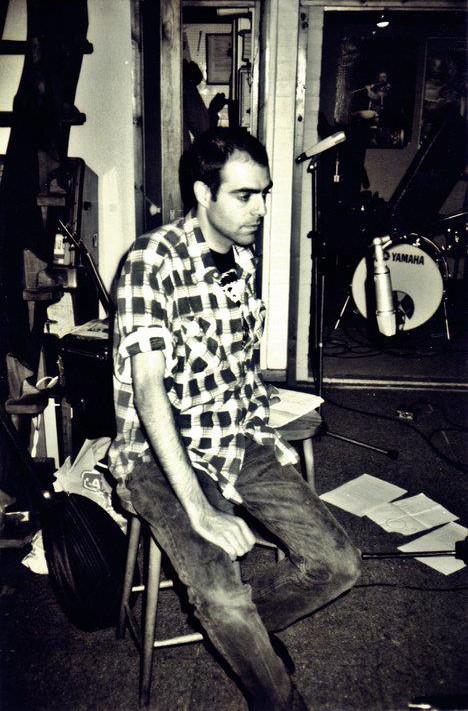
You’ve talked about how you’re not necessarily a fan of your voice on the album but I think that because it’s so atypical of traditional country, you counter it with raw emotion that lends to the integrity of the world you’ve created. What were you able to relate to in your lyrics that allowed you to believe so firmly in the stories within each song?
For one thing, the country lyric form and content, of course, was very heavily in my mind, and in my spirit at the time. It’s very filmic music, I Knew Buffalo Bill. They’re little stories, like vignettes. With “Looking For A Place To Fall” I was already at that time beginning a lifelong love of mysticism, spirituality and Zen proposition. So I took Marty Robbins and I reimagined something like “El Paso” as it would be written by someone who’d also spent time in a Zen monastery. Possibly Leonard Cohen, with any luck. So you have all these themes of leaves falling and analogies of that kind. Then you jump to something like “Too Long” which is this kind of celebration of family and love and separation and reuniting and all that. Classic themes, universal themes. You know, you find them on an ABBA album, and if they’re on an ABBA album they’re universal. “Gone Free”, that’s a beautiful song about someone dying and the ambiguity and mystery of death. I would just write these lyrics, you know. I wasn’t thinking. I didn’t want to say anything. It just spoke.
“I was very, very lucky to be in a place in time where I could work with those people”
While he is not mentioned explicitly anywhere on the album except in the title, the shadow of Buffalo Bill looms large over the 8 tracks. Lesser known for his actual identity than for his ubiquitous moniker, the name Buffalo Bill seems to instantly evoke the hazy, sepia-stained image of the wild west. What did Buffalo Bill symbolize to you in the naming of this album?
When I was living in London before it all became a bit gentrified and monied, Islington was a great place in the early 80s. It was still quite beaten up and I used to spend a lot of time going to the charity shops, you know, at thrift shops and buying books and comics and all sorts of stuff on cassettes. A lot of my country stuff was on cassette, the classic format for country. So one day I walked into this thrift shop and it was all these old cowboy pulps, maybe even from the 50s, and in pretty good condition. The cover story on one of them was “I Knew Buffalo Bill”, it was some guy’s account of how he knew Buffalo Bill from back in the day when it was current. So they dug it up and turned it into a story. I remember saying to Nikki when we were talking about the album title, I showed him the pulp and we were like, wow, this is so cool. I wasn’t necessarily preoccupied with Buffalo Bill, but in the context of the music and the album, it’s almost ambiguous and very lateral. But it’s perfect.
I Knew Buffalo Bill is an album permeated by loss whether experienced by the characters or the actual musicians behind it. In retrospect it’s an oddly prophetic album considering the lyrics concerning hard living, regret over time lost, and an overwhelming loneliness. It is painful to think that in the last 30 years we lost 4 of the most unique and irreplaceable musicians of the last century. Fortunately, we still have you. Can you tell me about the legacy of this album and if you think I Knew Buffalo Bill eulogizes them each in a small way?
You know, the fact that Rowland died just after Pop Crimes is criminal. Suddenly in Australia, and it was rippling out, people were like, “Jesus, this is astounding stuff”. He was partly his own worst enemy but what an artist does is what an artist does, what their hobbies may consist of isn’t really relevant. There’s a lot of people that do the stuff that Nikki and Rowland did in their spare time and their music’s crap. And Epic (Kevin Godfrey) had died before that. That was awful because he was the first person I knew personally, of my generation, who I knew as a friend and a musician who died that young. It was awful. Then Nikki died, and it was like here we go again. Then with Rowland gone I was the last of the core Buffalo Bill quartet. The legacy thing and how I respond to that, I mean, I was very, very lucky to be in a place in time where I could work with those people. It’s the kind of thing that sometimes life just hands you a prize and I had the wits about me at the time, which I don’t always, to just to grab it. Having known Nikki and Epic as much as I did, when I went to record Buffalo Bill, I stayed with Nikki’s parents. So did Rowland. They had this big house, lovely people, devout Christians and they loved me because I, at that time, was married and I was vocal about how much I love my wife and daughter and I’d finished high school and they thought it was great, you know and that I would be a good little model for Nikki. They were so lovely and gracious. It was just me, Rowland and Nikki in this place, hanging out, going to the pub at night and then going back and sleeping at Nikki’s parents and looking through Nikki’s books. He had too many to move, dozens, hundreds of books, history and antiquarian books and all sorts of fiction. You can see where all those lyrics came from, this phenomenal knowledge and love of 18th and 19th century English literature, you know, adventures and hero stories and colonialism. It was quite a crazy experience staying with them and it was awful when Nikki died. Just terrible. When I phoned Rowland I just said, “I’ve got some very bad news, Nikki’s died” and he just said “both sons.” He just automatically thought of Nikki’s parents because they were just so lovable. The one thing they didn’t expect was to have two sons like Nikki and Epic. And especially of course not for them to predecease them. It’s awful. And then that’s the role while I’m still here. I think back to when I was a teenager in Ottawa and I was obsessively listening to The Beach Boys and The Who and eventually the Ramones, whoever it was. My circumstances now are very modest, you know, but I’ve had a very good life and I think there’s people around, quite a few more than I’m aware of and to them, the music I have made means as much to them as the music I loved when I was younger still means to me. And that’s a very, very trite to say, but it’s such a weird and humbling thing to know, and it makes it all worthwhile.
Jiah Carron
Jeremy Gluck Facebook / Instagram / Bandcamp

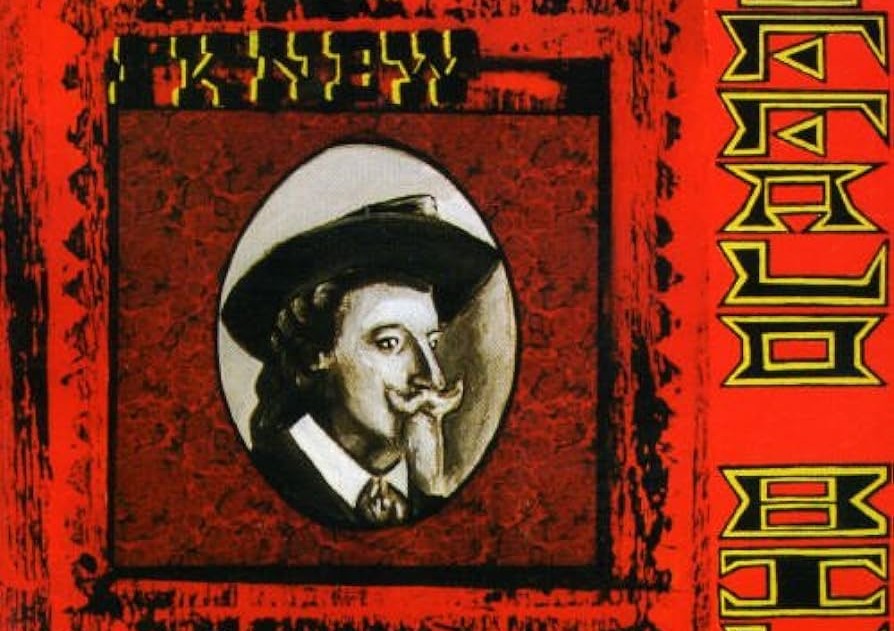
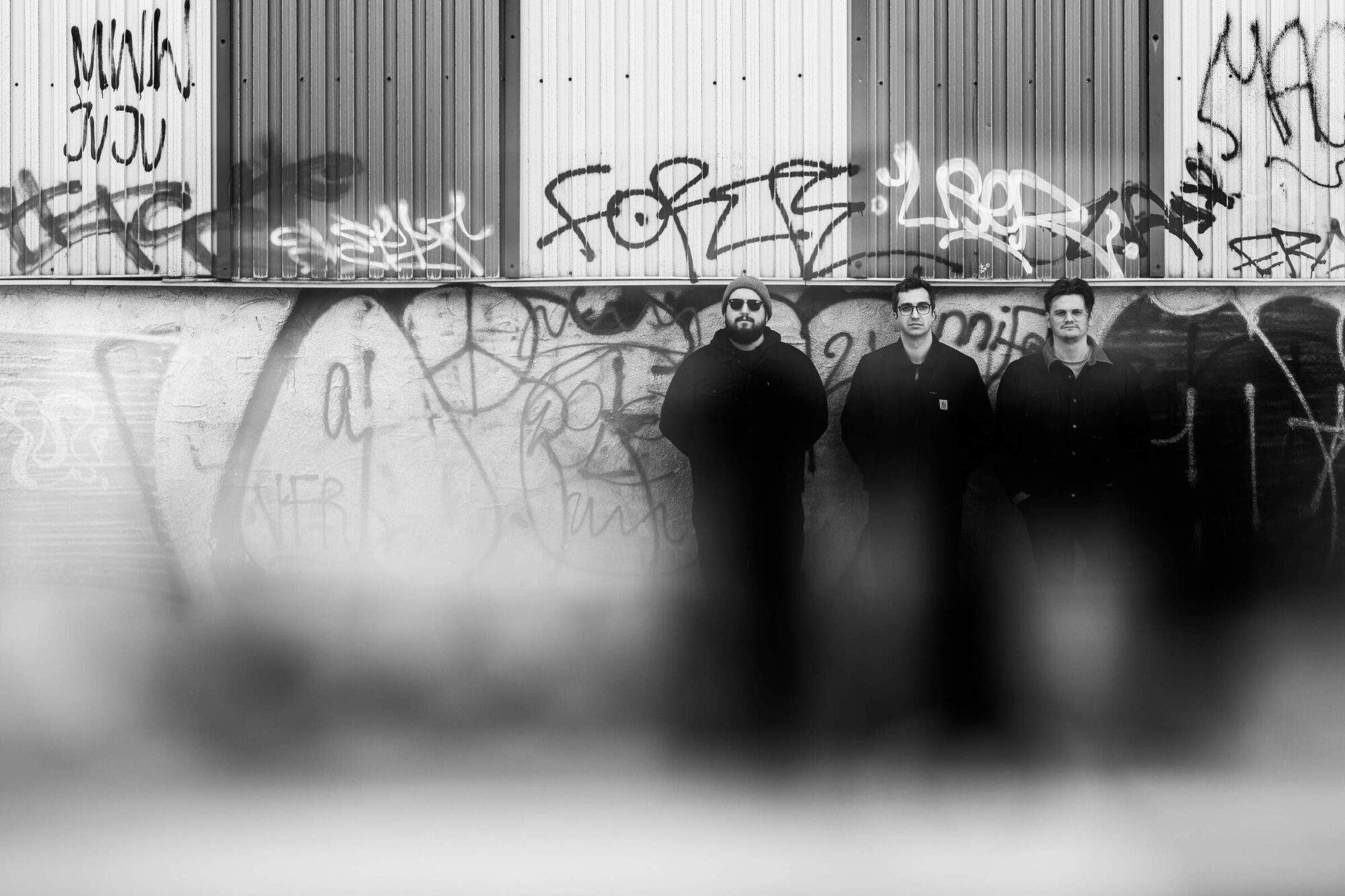
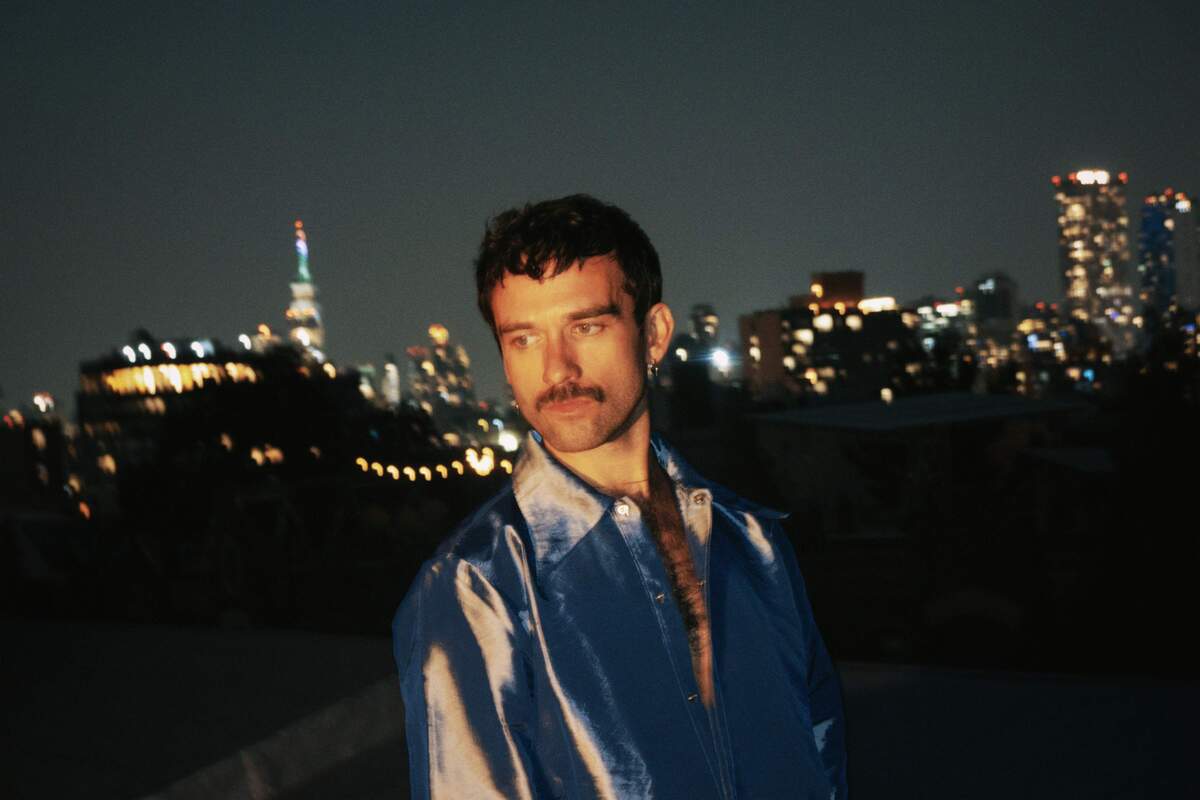
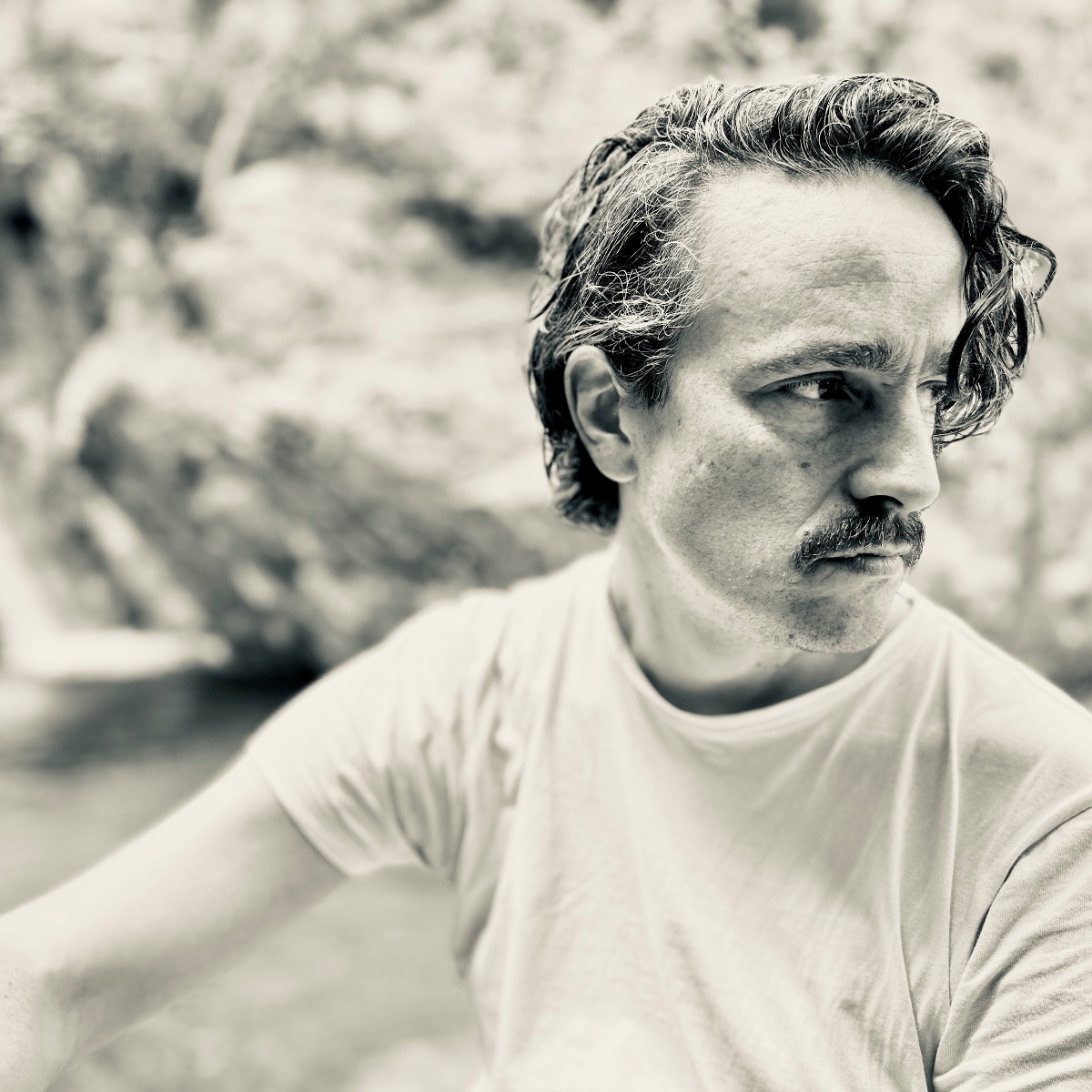
Wow thank you for this. I’m reading while listening to the record. I love all things Nikki and Rowland. This album is a very nice addition to their oeuvre.